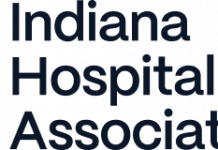Marilyn Odendahl for www.theindianalawyer.com
Attorneys could be tapped to handle cases under the U.S. District Court for the Southern District of Indiana’s new mandatory pro bono rule before the end of this year.
The District Court has adopted Local Rule 87, which is designed to bolster the number of lawyers available to represent pro se litigants at no charge. Two pools of attorneys will be created — the volunteer panel will consist of lawyers who offer their services to the court, and the obligatory panel will be filled with lawyers who are required to provide representation.
Unrepresented litigants who have shown the court they cannot afford legal assistance and whose cases have cleared substantial hurdles, like surviving summary judgment, will be provided pro bono attorneys. If none of the volunteer attorneys take the case, the court will pull a lawyer from the obligatory pool.
Attorneys who have appeared before the court at least 10 times in civil cases during 2015 will be placed in the obligatory panel and assigned cases. The calculation is based on the number of court appearances filed, not on the length of time representing a particular client. If a lawyer files an appearance in 2015 and the case continues through 2016 and into 2017, the court will only count that as one appearance.
The new rule will take effect Sept. 1, 2016, but the first obligatory panel will not become active until Oct. 1. Lawyers chosen to be in the first round will be notified of their selection about a month in advance.
New obligatory panels will be pulled together each quarter. Similar to jury pools, attorneys who are placed in the panel but not given a case will be absolved from serving in the obligatory panels created during the next three quarters.
Malpractice insurance coverage will be available through the Heartland Pro Bono Counsel and the Indiana Pro Bono Districts.
The new rule was formulated by a court-appointed committee in response to a series of remands from the 7th Circuit Court of Appeals. Cases were being sent back because the Chicago panel felt the District Court should have recruited counsel to represent the indigent litigants. Many of these litigants are incarcerated.
Posted for public comment in May 2016, the proposed rule brought 10 written comments which, according to the court, is a record.
In response to concerns from the Indiana State Bar Association and the Indianapolis Bar Association, the court altered the language in the Duties of Recruited Counsel section. Now an attorney tapped from the obligatory panel has seven days to file a motion to withdraw if representing the pro se litigant would conflict with an existing client.
Lawyers who provide their services pro bono to unrepresented litigants will be able to recoup some money for expenses.
According to a general order issued with the announcement of the adoption of the new rule, attorneys recruited to provide representation may petition the court for prepayment or reimbursement of certain out-of-pocket expenses.
The expenses considered appropriate for reimbursement or prepayment include deposition and transcription costs; travel expenses; fees for serving papers and appearance of witnesses; interpreter services; and costs of photocopies, photographs and telephone calls.
Attorneys must get approval in advance if the expense will exceed $1,000. Also, all requests for payment of expenses must be filed with and approved by the judge assigned to the case. No payment will be made without a court order.
The money for the expenses will be appropriated from the court’s Library Fund. Recruited counsel who are awarded fees must repay the fund for any expenses paid as part of litigating the case.
The District Court is preparing resources to help attorneys who represent these clients. It is planning a continuing legal education program for Sept. 21, and it will be making James Chapman available to attorneys who have questions about their pro bono cases. Chapman is an Illinois attorney and has worked extensively with prisoners through his organization, the Illinois Institute for Community Law and Affairs.
For more information, attorneys should visit the Southern Indiana District Court’s website and click on the “Pro Bono Opportunities & Resources†bar in the center of the screen.




